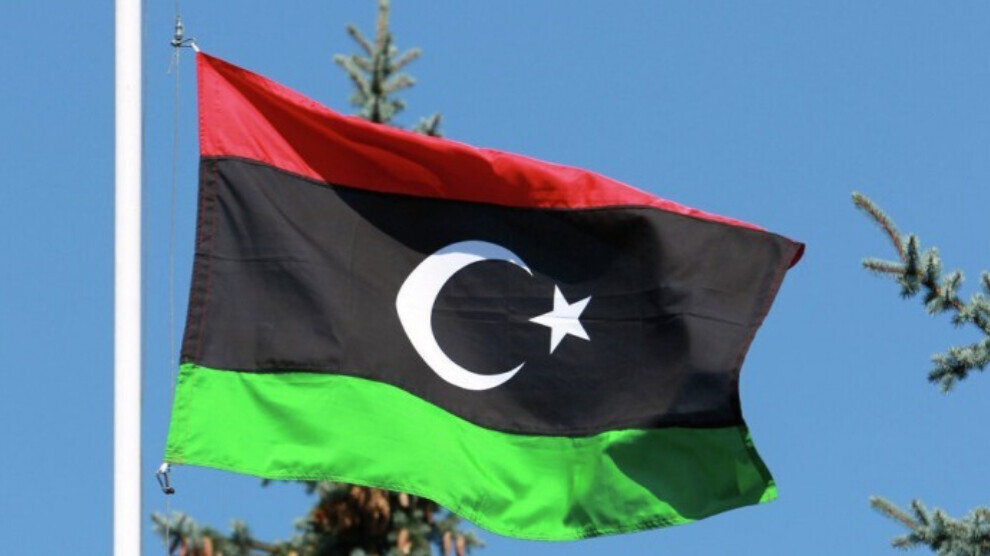US calls on Russia, Turkey, UAE to halt Libya intervention
The United States on Thursday called for the immediate withdrawal of Russian and Turkish forces from Libya, after a deadline for them to leave was ignored.
The United States on Thursday called for the immediate withdrawal of Russian and Turkish forces from Libya, after a deadline for them to leave was ignored.

The United States called on Russia, Turkey and the United Arab Emirates on Thursday to immediately halt their military interventions in Libya as demanded in a cease-fire agreement, and accept Libyan sovereignty as it moves to unify its government, hold elections and end years of fighting.
U.S. deputy ambassador to the U.N. singled out the three key foreign backers of Libya’s rival governments in a speech to the U.N. Security Council.
Richard Mills spoke after acting U.N. envoy Stephanie Williams said flights carrying military cargo were continuing to both sides, “undermining” the cease-fire agreement. She called for all foreign fighters and mercenaries who were supposed to leave Libya by Jan. 23 to leave now.
Since the 2011 NATO-backed uprising that overthrew and later killed dictator Moammar Gadhafi, Libya has been in turmoil, slit between rival administrations in the east and west, each backed by an array of militias and foreign powers.
Turkey is the main patron of the U.N.-supported government in the capital, Tripoli, while the UAE, Russia and Egypt back the forces of military commander Khalifa Hifter who runs most of the east and the south.
Mills made clear that the Biden administration backs the rival Libyan parties’ demands for the end to military intervention and the withdrawal of foreign forces and mercenaries as outlined in the Oct. 23 cease-fire agreement.
“External actors who have militarily intervened in this conflict have wholly and briefly ignored Libyans’ demands,” he said. “We call on all external parties to include Russia, Turkey, and the UAE to accept Libyan sovereignty and immediately cease all military intervention in Libya.”
“We call on Turkey and Russia to immediately initiate the withdrawal of their forces from the country and removal of the foreign mercenaries and military proxies that they have recruited, financed, deployed and supported in Libya,” he said.
He also stressed that it is “critical for the Libyan people and the international community to take all necessary steps to prevent spoilers from standing in the way of this political transition.”
In her final briefing to the council, after nearly a year in charge of the U.N. political mission, Williams expressed concern at continued fortifications and defensive positions created by Hifter’s forces inside Gardabiya Airbase in the strategic city of Sirte, the gateway to the country’s major oil fields and export terminals and along the Sirte-Jufra axis.
Air cargo deliveries were continuing to military bases and airbases on both sides, she said, and also expressed concern at the establishment by the Presidency Council in Tripoli of another security structure under its control in mid-January “composed and led by prominent armed groups.”
“The multiplication of security agencies under the leadership of armed groups, with overlapping responsibilities, unclear lines of command and control, and financed with public resources further erodes the state’s security architecture and undermines future security sector reforms and demobilization, reintegration and integration of armed groups,” she warned.
On a positive note, Williams said the 55-point road map to peace approved by leaders of 12 world powers and other key countries in Berlin a year ago did what was envisioned — “it created an international umbrella for the United Nations to work directly with the Libyan parties ... to seek a Libyan-Libyan resolution.”
She cited “tangible progress,” including the cease-fire which is holding, the road map adopted in Tunisia in mid-November charting the path to restore “democratic legitimacy” by setting Dec. 24 as the date for national elections and agreeing to establish an interim unified executive authority, and long overdue economic and financial reforms which “are well under way.”
Williams was to head to Geneva on Friday for what she called “a decisive round of intra-Libyan talks which is expected to result in the creation of a new temporary unified executive.”
“I also remind all parties, states with vested interests in Libya, and importantly those Libyans who seek executive office, that Libya’s future is in your hands,” Williams said.